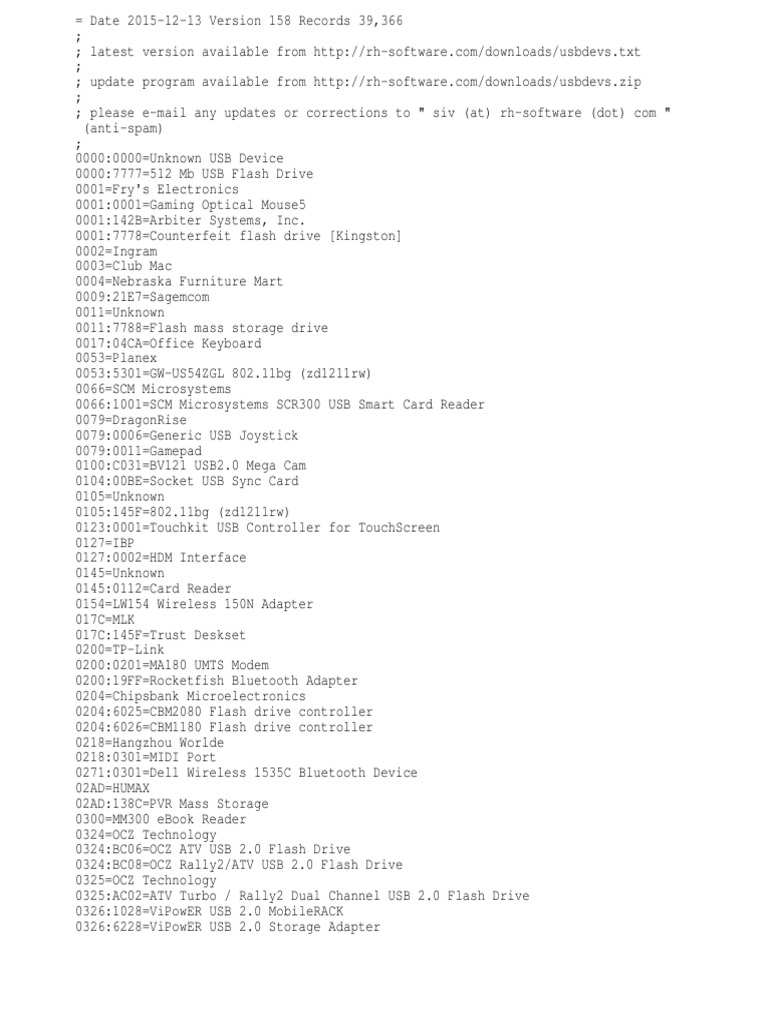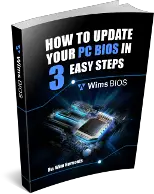- Download Acer Netchip Gadget Serial V2.4 Driverrs
- Download Acer Netchip Gadget Serial V2.4 Driverr Download
- Download Acer Netchip Gadget Serial V2.4 Driver
Download driver Linux Gadget Serial v2.4 Driver version 1.0.0.0 for Windows XP, Windows Vista 32-bit. Acer Netchip RNDIS/Ethe rnet Gadget: USB VID0502&PID3211. To download the correct Gadget Serial driver. Windows Vista 64-bit, Windows 7 32. Gadget serial drivers and updates for windows 7. Drivers for your gadget serial v2.4 to keep. For windows 7: we can gadget serial driver download. Download the latest driver for Gadget Serial v2.4, fix the missing driver with Gadget Serial v2.4.
| Sciologness The most complete collection of drivers for your computer! |
Drivers Catalog ⇒ Port Devices ⇒ Acer ⇒ Gadget Serial v2.4 (COM3) Drivers Installer for Gadget Serial v2.4 (COM3)If you don’t want to waste time on hunting after the needed driver for your PC, feel free to use a dedicated self-acting installer. It will select only qualified and updated drivers for all hardware parts all alone. To download SCI Drivers Installer, follow this link.
Gadget Serial v2.4 (COM3): Drivers List2 drivers are found for ‘Gadget Serial v2.4 (COM3)’. To download the needed driver, select it from the list below and click at ‘Download’ button. Please, ensure that the driver version totally corresponds to your OS requirements in order to provide for its operational accuracy.
Gadget Serial v2.4 (COM3): Supported Models of LaptopsWe have compiled a list of popular laptops models applicable for the installation of ‘Gadget Serial v2.4 (COM3)’. By clicking at the targeted laptop model, you’ll be able to look through a comprehensive list of compatible devices.
|
| |||||||||||||||||||||||||||||||||||||||||||||||||||||||||||||||||||||||||||||||||||||||||||||||||
Tested on Embedded Linux S3C2440 target board to be configured as USB device, like USB mass storage and serial cable, the test result was successful. And tried to test S3C2440 board as USB Host, I didn’t get successful result.
S3C2440 supports 2-port USB host interface as follows,
– OHCI Rev 1.0 compatible.
– USB Rev 1.1 compatible
– Two down stream ports.
– Support for both LowSpeed and Full Speed USB devices.
S3C2440A device controller support:
– Full speed USB device controller compatible with USB specification v1.1
– DMA interface for bulk transfer.
– Five endpoints with FIFO:
EP0: 16 bytes(register)
EP1: 128 byte IN/OUT FIFO (dual port asynchronous RAM): interrupt or DMA.
EP2: 128 byte IN/OUT FIFO (dual port asynchronous RAM): interrupt or DMA.
EP3: 128 byte IN/OUT FIFO (dual port asynchronous RAM): interrupt or DMA.
EP4: 128 byte IN/OUT FIFO (dual port asynchronous RAM): interrupt or DMA.
S3C2440A board has two USB ports: the port with a type A connector works as a USB host; the other with a Type B connector works as a USB peripheral. Both USB host controller and UDC (USB device controller) are regarded as platform device and their drivers are registered as platform driver.
Source code of USB host controller driver is linux-3.8.7/drivers/usb/host/ohci-s3c2410.c.
The UDC driver reads/writes the registers of the UDC and reads/writes the FIFOs of the endpoints. Gadget drivers sit on top of the UDC dirver, and use the service it provides. A UDC driver must impelment a set of function to manipulate endpoints and gadget, as well as to register and unregister a gadget driver. They are defined in the file linux-3.8.7/include/linux/usb/gadget.h.
The UDC of S3C2440A is integrated on the S3C2440 chip and hence is regarded as a platform device. Its driver is a platform driver. Source code of the UDC drier for S3C2440 is linux-3.8.7/drivers/usb/gadget/s3c2410_udc.c. It is for all the S3C2410 based boards.

The UDC driver maintains a request queue for each of the 5 endpoints, a gadget driver puts request to the queues by calling queue(). When the request is completed and the request has a callback function, the UDC driver dequeues the requests and calls its complete function.
In Linux 3.8.7 source code folder, make menuconfig.
In Linux/arm 3.8.7 Kernel Configuration –>Device Drivers --->, –>USB support
Configure to install usb device driver in Kernel. In Device Drivers --->, then go to SCSI device support --->,
Under [*] USB support --->, select,
Configure to support the file system, go to File systems --->, select,
Change from
to
Configure the language support, go to File systems --->, select,
To be able to support Chinese characters, go to Device Drivers --->, Input device support --->,
Go to HID support ---> then, USB HID support --->,
After S3C2440 startup, inserted into one USB thumb driver, the S3C2440 cannot detect the USB thumb driver, the test result failed.
We use part of the NAND as a USB Disk. Edit the source code linux-3.8.7/arch/arm/mach-s3c24xx/mach-mini2440.c, allocate 50M to the root file system and the rest for the USB disk, it is around 195M.
0x03200000 is around 50M, it is for root file system.
Configure busybox,
Under Linux System Utilities --->, change the configuration, [*] mkfs_vfat, then save the configuration.
Compile and install busybox,
Download Acer Netchip Gadget Serial V2.4 Driverrs
Generate the root file system,
Edit file,
Add following line
Before the line,
Add the following line,
Before following line,
Change directory to linux-3.8.7,
Configure the Linux kernel to support USB Gadget,
Under Linux/arm 3.8.7 Kernel Configuration, go to Device Drivers --->, then go to [*] USB support --->, and < *> USB Gadget Support --->.
Configure as the following as show below,
Enter USB Peripheral Controller –>, USB Peripheral Controller --->, it is the same menu further go down, and select < *> S3C2410 USB Device Controller.
Exit to Device Drivers, Enter into < *> Memory Technology Device (MTD) support --->,
Select as below items,
Exit to Linux/arm 3.8.7 Kernel Configuration.
Select File systems ---> DOS/FAT/NT Filesystems ---> < *> VFAT (Windows-95) fs support.
Change the Default codepage for FAT to 437,
From
to
Select File systems --> -*- Native language support ---> (utf8) Default NLS Option, select below options,
We will use initramfs and not the rootfs in the NAND flash as we tested the YAFFS2 file system before, we need to change it back.
Enter General setup ---> and scroll down to '[*] Initial RAM filesystem and RAM disk (initramfs/initrd) support'.
Set the Initramfs open source file(s) to 'initramfs.cpio', exit from 'General setup'.
Exit and save the configuration.
Compile the kernel and modules.
Create root file system,
Download Acer Netchip Gadget Serial V2.4 Driverr Download
Recompile the kernel for the newly created root file system, it is to incorporate the newly created the root file system.

Download the new kernel into the S3C2440 board, and boot it up,
Now the kernel is too big, need to increase the kernel partition size, 6M size is not enough, need to increase to 7M, the error when downloading the zImage was as below,
Change the partition, increase the kernel partition to 0x00700000
Modify the source code, linux-3.8.7/arch/arm/mach-s3c24xx/mach-mini2440.c
Recompile the kernel,
Since the newly generated zImage is more than 6M, we need to change the setting, using command part add kernel 0x00060000 0x00700000 0, the first number in command is the starting address of kernel stored in the NAND flash. The second number in the command is the number of bytes the bootloader will copy from kernel partition to RAM, it must be greater than the size of the zImage.
The new table is as below,
| Name | Offset | Size |
|---|---|---|
| vivi “u-boot” | 0x000000000000 | 0x000000040000 |
| param “u-boot-env” | 0x000000040000 | 0x000000020000 |
| “kernel” | 0x000000060000 | 0x000000700000 |
| “root” | 0x000000760000 | 0x00003fa80000 |
Refer to this article: Embedded Linux S3C2440 Profiling , use vivi command line to modify the part table, and refer to this article Embedded Linux S3C2440 – Partitions an FileSytem (YAFFS2) to change linux_cmd_line parameter.
Change the linux command line to noinitrd init=/init console=ttySAC0,115200.
Now donwload the kernel zImage again, the downloading of the new zImage was successful.

At Host side,
At board side,
Boot up the S3C2440 board.
Create fat32 filesystem on /dev/mtdblock4.
Connect the USB type B port of the board to the USB tyep A port of the PC.
On the S3C2440 board, load the driver module and use /dev/mtdblock4 as the storage file.
At host side, the PC will detect the USB device as a File-Backed Storage Gadget.
Download Acer Netchip Gadget Serial V2.4 Driver
Below was the message showed on the Fedora by typing command dmesg. Mount the storage and copy the file download_image.sh into the storage.

At S3C2440 board side, remove the module g_mass_storage, and mount the /dev/mtdblock4, it was checked the file download_image.sh after checking on the S3C2440 board.
We can also check the USB gadget disk on the Windows system, just connect the host PC windows system, the result is as below.
Detected the S3C2440 – USB Gadget as 195M memory size.
Detected the S3C2440 – USB Gadget as and the file download_image.sh is inside.
The gadget serial driver talks over USB to either a CDC ACM driver or a generic USB serial driver running on a host PC. On the S3C2440 device side Linux system, the gadget serial driver looks like a serial device. On the host-side system, the gadget serial device looks like a CDC ACM compliant class device or a simple vendor specific device with bulk in and bulk out endpoints, and it is treated similarly to other serial devices.
We have generated the gadget serial driver module linux-3.8.7/drivers/usb/gadget/g_serial.ko.
On the S3C2440 side, load the driver module, by default it will be loaded as ACM device as below shows.
We find a new device node /dev/ttyGS0 is created.
And the host PC detects the new device and a new device node /dev/ttyACM0 is created, the dmsg command shows as below,
Use lsusb command to show the detail of the device, and send string 2222222222 to the serial device /dev/ttyACM0.
At S3C2440 board side, run cat to read from the serial devcie /dev/ttyGS0, after the host PC sent string 2222222222, the target S3C2440 received the same string 2222222222 right away.
Embedded Linux S3C2440 environment setup
Embedded Linux S3C2440 Environment Startup
Embedded Linux S3C2440 Build and Boot an Image
Embedded Linux S3C2440 Application Development and Debugging
Embedded Linux S3C2440 Networking
Embedded Linux S3C2440 – Kernel Module
Embedded Linux S3C2440 – Kernel Debugging
Embedded Linux S3C2440 – Multi-thread Scheduling
Embedded Linux S3C2440 Profiling
Embedded Linux S3C2440 – QEMU and Graphic
Embedded Linux S3C2440 – Partitions an FileSytem (YAFFS2)
Host controller interface (USB, Firewire) Wiki
mini2440 usb设备支持
mini2440的U盘挂载
Kconfig – Tips and Best Practices
S3C24XX USB Host support
